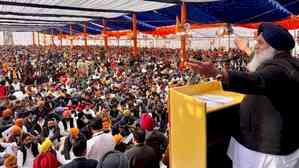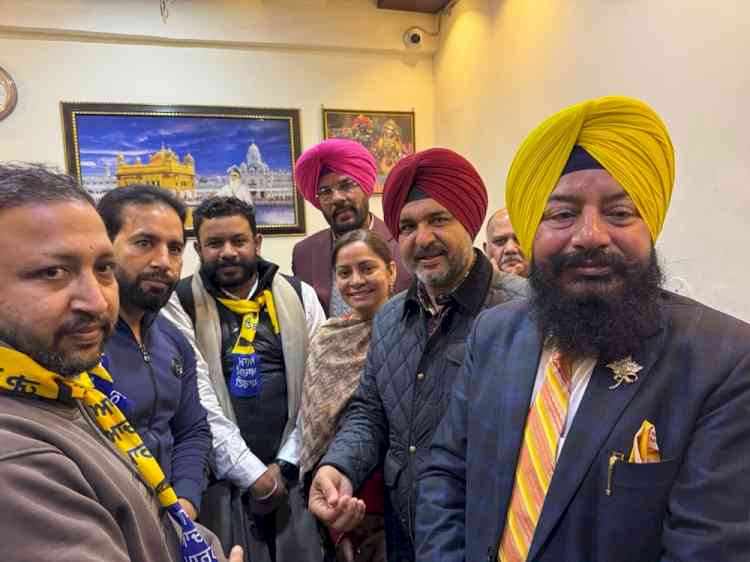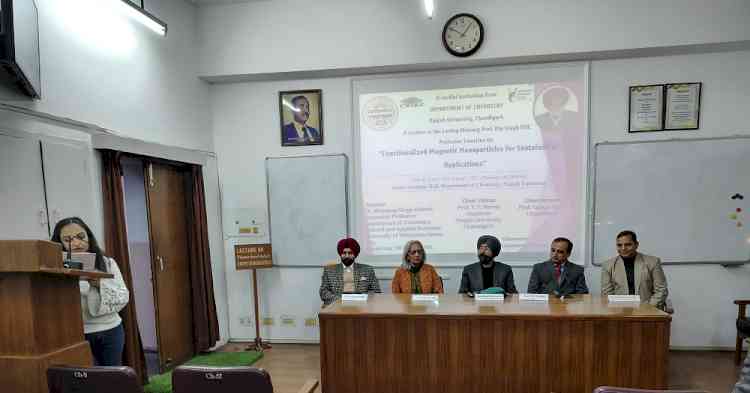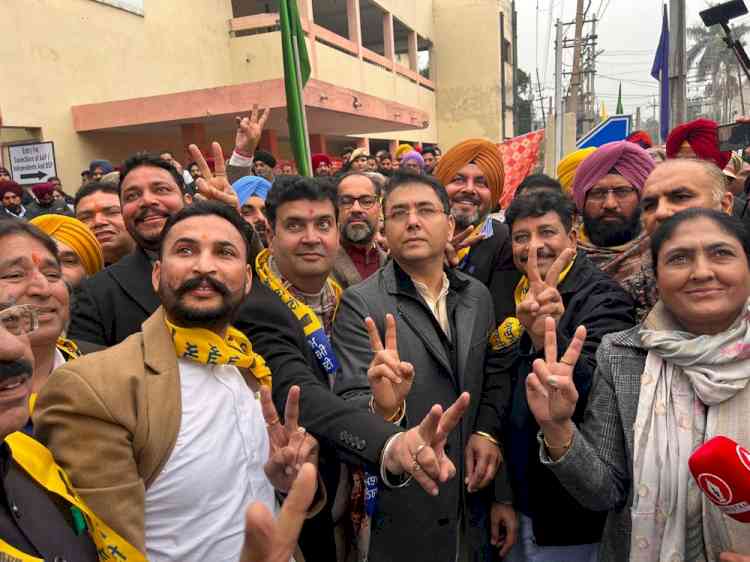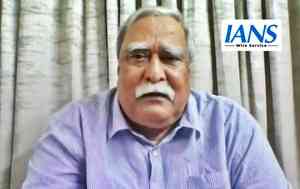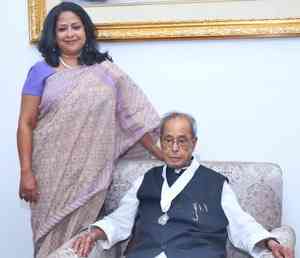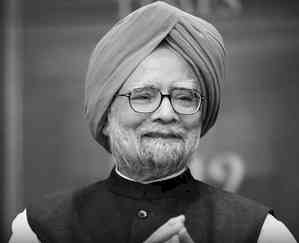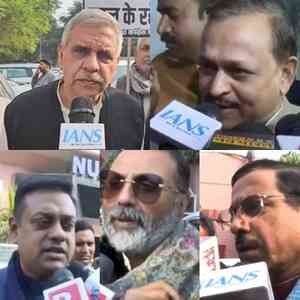Agro Processing Complex - A Game-Changer For Rural Economy
Agricultural raw materials must undergo a suitable transformation in order to provide convenience to society, whether in storage or use. Dr. Satbir Singh Gosal, Vice-Chancellor of Punjab Agricultural University, Ludhiana, emphasized the vital role of agro-processing in making farm produce consumable. These remarks came in the context of the Agro-Processing Complex (APC), which serves as a game-changer in improving the rural economy.
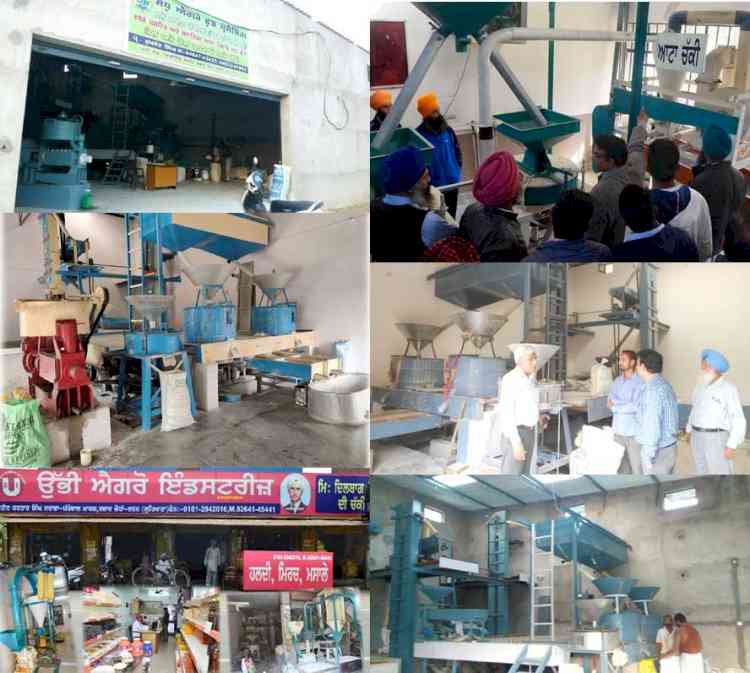
Ludhiana, June 30, 2023: Agricultural raw materials must undergo a suitable transformation in order to provide convenience to society, whether in storage or use. Dr. Satbir Singh Gosal, Vice-Chancellor of Punjab Agricultural University, Ludhiana, emphasized the vital role of agro-processing in making farm produce consumable. These remarks came in the context of the Agro-Processing Complex (APC), which serves as a game-changer in improving the rural economy.
Highlighting the significance of primary processing, Dr. Gosal observed that it converts raw agricultural materials into edible forms, providing convenience to society. By establishing agro-processing infrastructure, agricultural output can reach markets effectively, offering farmers additional opportunities to earn from their produce. Furthermore, this industry aids in minimizing food loss by adding value to the produce and generating income.
Considering all these factors, along with the seasonal availability of crops, Dr. S.S. Gosal informed that the Department of Processing and Food Engineering at PAU has introduced the concept of the Agro Processing Complex (APC). This complex acts as a transformative hub converting several agricultural raw materials, especially durable crops, into secondary products that can be further cooked into nutritious food in households on a daily basis. It provides necessary facilities for the primary processing, storage, handling, and drying of cereals, pulses, oilseeds, and spices. Rural individuals can either utilize the APC for self-processing or custom-hire its services, he added.
Discussing the popularity of the APC concept among farmers and small entrepreneurs, Dr. Ajmer Singh Dhatt, PAU's Director of Research, hinted at the simplicity of the processing activities which do not require very high technical skills. The machines used in APC are locally available and can be repaired by a simple mechanic, he revealed. Moreover, the products prepared in APC find regular use in households. He opined that establishing APCs in rural areas can ensure quality products, generate employment and augment farm income.
Dr. Tarsem Chand Mittal, Professor and Head, Department of Processing and Food Engineering, outlined the key components of the agro-processing complex. These include a 5 qtls per hour Atta chakki for whole flour, a mini rice mill processing 250 Kg/hr, an oil expeller unit processing 100 kg/hr, a honey processing unit completing 50 kg/batch in one hour, a spice grinding unit for turmeric and red chilli, a jaggery processing unit handling 10 qtls/hr, a feed mill, and a dal processing and packaging unit. The estimated cost of machinery ranges from Rs. 15 to 25 lakh, he stated. The department has designed a suitable layout requiring a minimum space of 50 ft X 60 ft to accommodate the machines, although additional open space is needed for vehicle movement. Dr. Mittal mentioned that a total electric load of 25 KW is sufficient to operate the machines. Furthermore, he disclosed that such a unit creates employment opportunities for 4-5 individuals in rural areas.
Dr. Mahesh Kumar, Professor of Processing and Food Engineering, suggested that individuals, Self-Help Groups (SHGs), Farmer-Producer Organizations (FPOs), and voluntary organizations at the village level can manage such complexes. He regarded agro-processing as a tremendous opportunity for farmers to enhance their profits through value addition and marketing. However, he acknowledged various challenges impeding the rapid growth of agro-processing in the state, including infrastructure limitations, skill development, advanced technology, market access, branding, and marketing issues. To promote this concept further, Dr. Kumar cited government schemes like PMFME, which provides up to 35% subsidy and easy bank loans, allowing anyone with 10% self-investment to benefit from the scheme.


 City Air News
City Air News 
